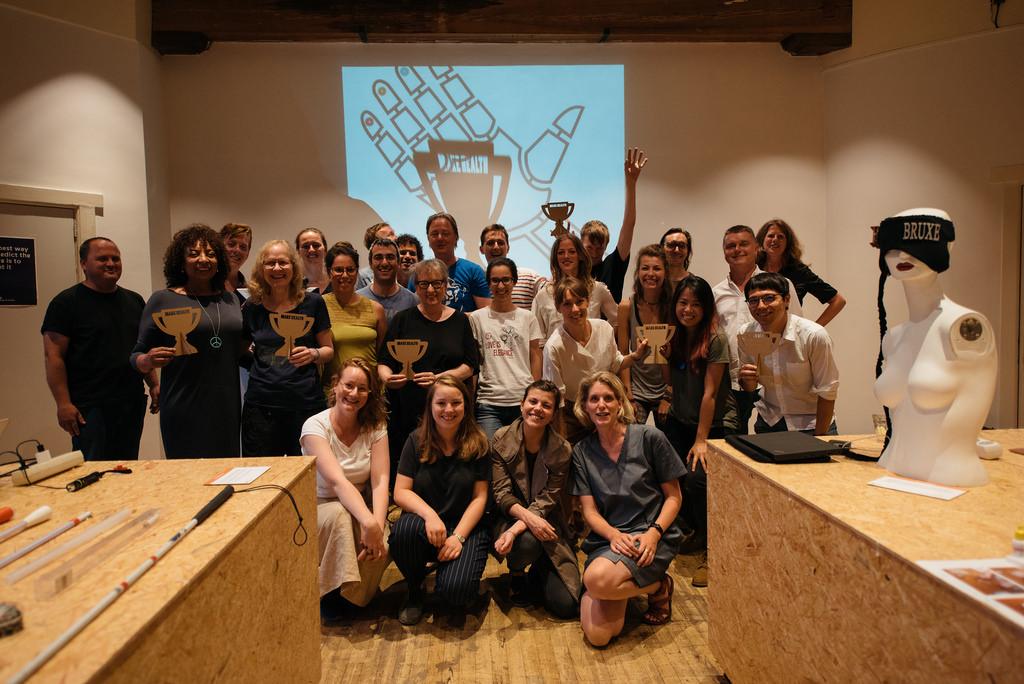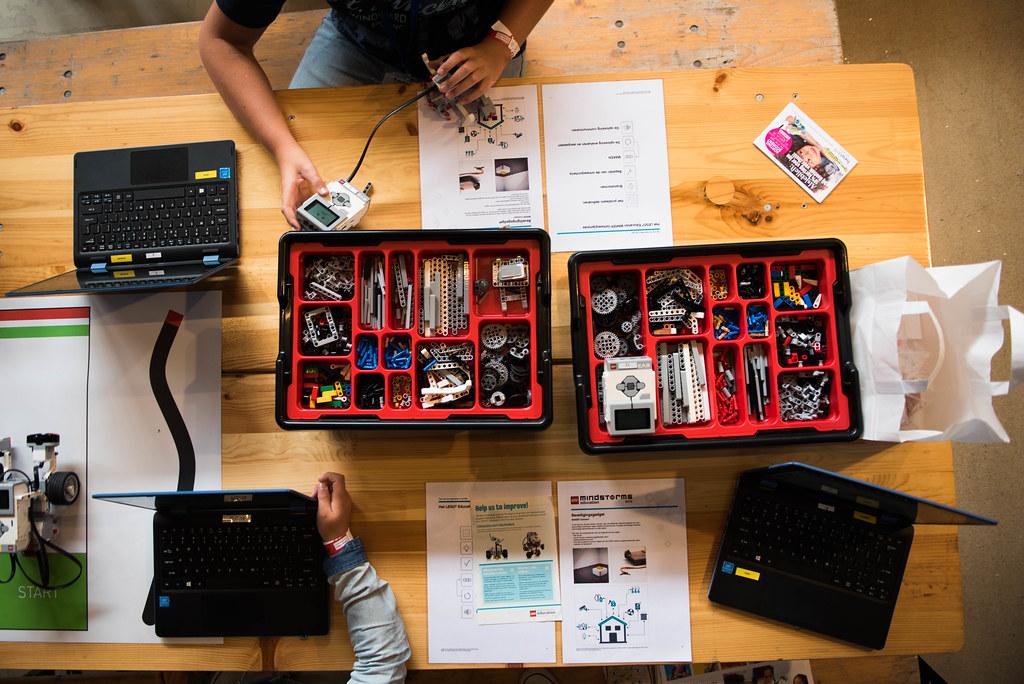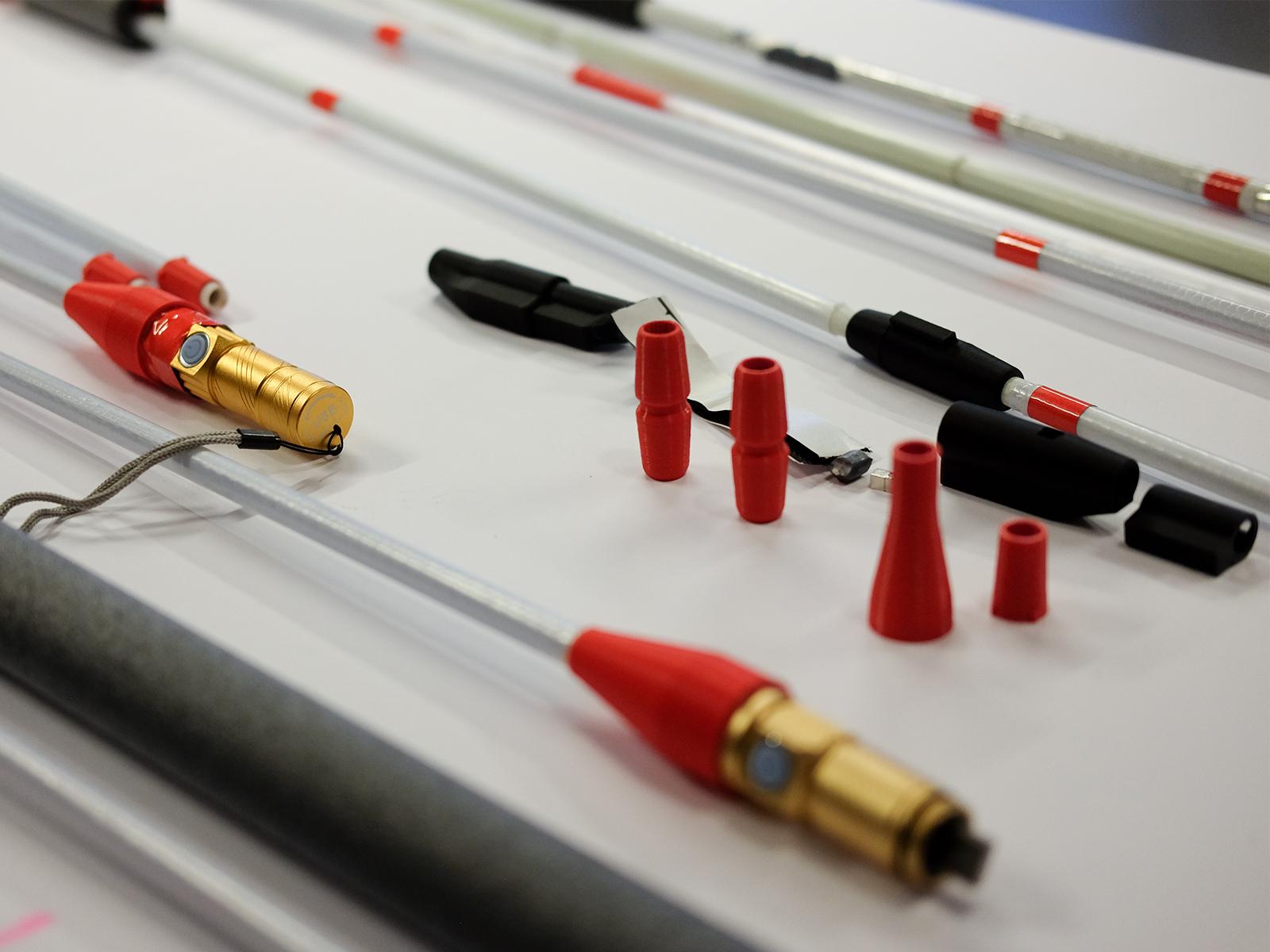At the start of July we finished our workshop series MakeHealth: Prototyping. For eight weeks, more than 20 participants could be found in the Fab Lab at the Waag every Thursday night, working on an open healthcare solution. The final night it was finally time: all participants could show their prototypes to the public.
We started the first session of the workshop series with an open tall to the participants. Who has a health or care related challenge? Cautiously four fingers were raised. After the first two pitches, even more people raised their hands to share their idea with the group. The health challenges were diverse: from a solution to teeth grinding to improving stoma-users’ toilet visits to measuring pain intuitively with patients. Some challenges called for practical solutions, whereas other solutions concepts still needed to be developed. And for me, as a workshop leader, it was very special to experience people initiating very personal and open conversations with each other. This was very promising for the workshop sessions still to follow.
The enthusiasm, openness and willingness to voluntarily cooperate continued in the following sessions. Participants got to know each other, deepened their knowledge on the people that would use their solutions and brainstormed about suitable solutions and approach. Every participant could bring in their own expertise to the team, but most of all learn from the others. People without technological background were introduced to electronics. Terms like Arduino, capacitors, resistors and jumperwires were mentioned. To then explain to each other what it is and what it is used for. But also brainstorming together about the interface: the designer in the team questions the technician, programmer and experience expert, to form a clear image of the information that needs to be shown.
The evenings were actually too short and often we closed the doors an hour late. Every week I saw concepts taking shape, and the first parts of the prototypes arising. The participants also continued to fully commit themselves every week to get one step further in the development. Sometimes with the help from our electronics expert Emma or support from designers Anna, Louisa en Lotte. But even a series of eight nights is too short. Too short to fully develop the prototypes. As soon as the first part of the prototype worked, new questions arose or the participants saw improvements in this first design. De first workshop series really was only the beginning of the development of several innovative open healthcare solutions. This is why we will continue in September with another workshop series: registration for this series is still possible!
Most teams will continue the development and testing of their prototypes. I look forward to the progress, experiences and new versions of the prototypes. It was truly a pleasure to be able to guide this group of participants. It was a pleasure!
Do you have an idea for a care solution that makes everyday life easier? Would you like to prototype healthcare solutions? The second series of MakeHealth: Prototyping starts 22 September 2018 at Makerspace Contact. More information and tickets here.
Have a look at the pictures from the MakeHealth: Prototyping endpresentations here.


